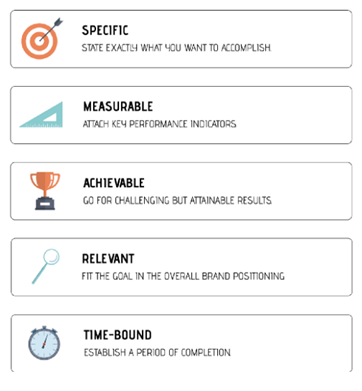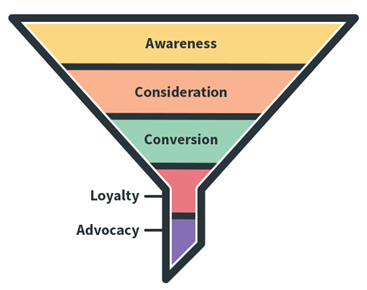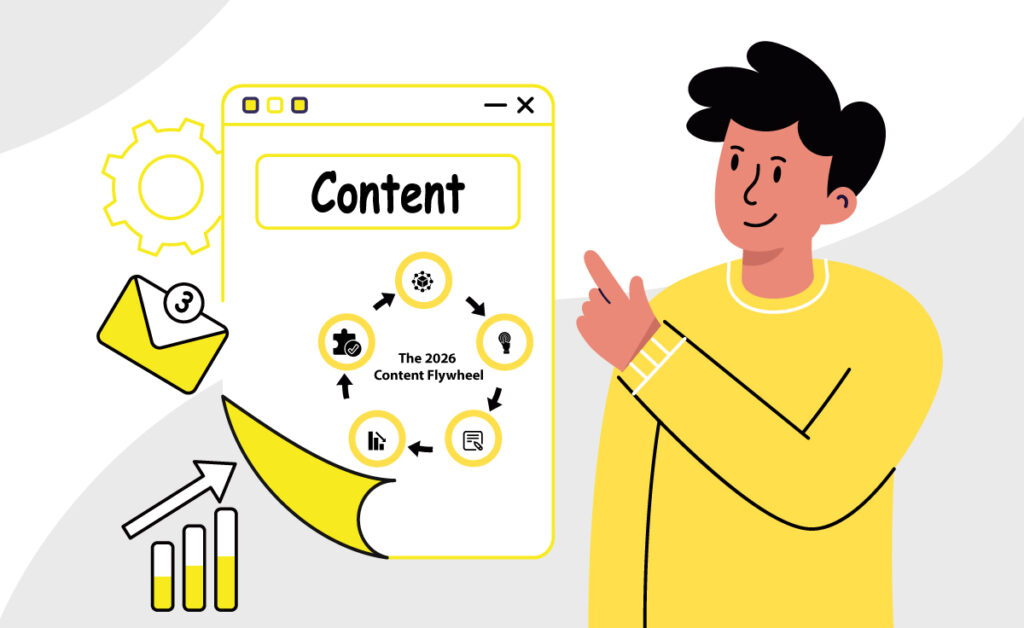Being successful at content marketing can be tricky for even the best and biggest brands. As it is nothing like traditional marketing, results don’t show up overnight. So, while most forward-thinking businesses know that content marketing will be their go-to strategy in the years to come, they usually have quite a few questions and doubts.
And at Justwords, we have been answering these questions time and again, for the last 10 years. So, we decided to list down 26 FAQs that we get and their answers, so you know exactly how a content marketing agency like us can help you navigate an extremely competitive market and win small and big battles.
1. What does content marketing mean?
Content marketing is a strategic way to create and distribute original, relevant, informative, useful and consistent content that attracts your target audience and retains them, to ensure conversion from prospective buyer to buyer. The right content can increase your website traffic, generate better leads and encourage these leads to turn into paying customers. The content might be textual, visual or a combination of both. Unlike conventional marketing, content marketing does not involve hard-selling, and instead establishes you as a knowledgeable and reliable brand in your particular industry. It subtly moulds your prospective and current customers’ mindset, so that they come to you for answers and solutions, thereby increasing your loyalty base over time.
2. Can content marketing really work for my business?
Yes, content marketing can indeed work for your business, if you go about it the right way. Statistics show that great content can bring in 55% more visitors to a site and 72% marketers say that creating valuable content improves their SEO ranking. The reason why content marketing works so well is because it doesn’t push your products in the customer’s face, but rather solves his problems and enhances your brand value and credibility. Great content means great storytelling too, which increases brand awareness and helps your target audience to relate with your brand. So, this boosts long-term relationships, which leads to better traffic and sales.

3. What kinds of businesses need content marketing?
To be honest, businesses of all types and sizes can benefit from content marketing. We have worked start-ups as well as big and established brands to power up their content marketing strategy and reach out to their target audience. Also, both B2C and B2B companies can use content marketing to establish their thought leadership, domain authority, drive engagement and get inbound leads without paying for traditional advertising. The only thing to remember is that, your goals might vary. So, the type of content and marketing techniques will be different.
For instance, in case of B2C marketing, your content must speak directly to the person who makes the buying decision. You will have to mould your content at every stage of the buyer’s journey, from awareness to consideration to decision, to match his mindset and need. And in B2B marketing, your content must address the pain points of a lot of people, from the purchase manager to the CEO. Especially where big purchases are concerned, you must frame different kinds of content to convince people in different departments or positions. Also, while in B2C marketing, content can be distributed across all popular channels, in case of B2B, you need to target professional networks and industry forums.
4. How can we transition from traditional marketing to content marketing?
If you have been reaching out to your target audience through traditional channels for a long time, you will need to maintain the same tone or voice while transitioning to content marketing. The content, however, will need a little tweaking.
You can take the first step by creating a website and optimizing it for the search engines by creating good content that incorporates the right keywords. Your website will allow you to talk about your brand value and vision in details and engage with the visitor through blogs, case studies, and chatbots. The visitor will be able to go through your services in detail as well. All these things are difficult to accomplish with traditional marketing.
You can then create business pages on social media platforms like Facebook, Instagram, Twitter, LinkedIn, and Pinterest (depending on your domain and whether you are a B2B or B2C). This will help you connect with your target audience better and generate more brand awareness.
5. How do you get started with the content?
We start by understanding the client’s goals and objectives. Usually, most clients want the content to be aligned with their marketing goals, like getting more website traffic, improving brand awareness, getting more clicks on CTAs, or boosting the rate of conversions. We also ensure that a client’s goal is always SMART, or Specific, Measurable, Attainable, Relevant and Time-bound. This helps us to come up with a strategic content plan.

6. Who will read my content?
One of the biggest mistakes brands often do is they start churning out content without understanding who will read it. Content marketing only works when you know who you are writing for, what their pain points are, and what they want to know from you. So, we create buyer personas or zero in on the target audience. This means, we research well and create a rough image of what your reader might be like. It helps us to build content that speaks to the readers directly, address their challenges and offer the best solutions.
7. How is audience different from traffic?
When you are marketing content, it is essential to understand the difference between traffic and audience. Traffic refers to the number of people visiting your website and audience refers to those who need, like and look forward to your content. So, though the first objective for any business is to drive more traffic to their website, the main goal should be to build an audience base. If you are doing content marketing right, you will be able to consistently attract, engage and educate the audience, so that they convert into customers.
8. How will content marketing help me beat competition?
What you first need to understand is that, there are many businesses out there that are selling what you are selling. So, there are too many options for your potential customers. Now, what you also need to remember is that, a prospective buyer is not really interested in your product. He has a problem that he needs to solve. So, he will go with a brand that can assure to solve his problem in the best possible way. This is where content comes in and makes the difference, by educating your audience, helping them, guiding them and convincing them to purchase your product.
9. How can content marketing help the buyer’s journey?
Any prospective buyer usually goes through three major stages of the marketing funnel – awareness, consideration and decision. And the content should ideally address his needs at every stage and motivate him to move to the next. So, as an experienced content management agency, we plan the content to suit the prospect’s mindset and behavior at each stage. This is done to enhance his positive outlook towards your brand and increase the probability of conversion.
During the awareness stage, the prospect is not really sure what his problem is or what he needs help with. So, at this point, your content should help him understand his problem better. We usually suggest blog posts, checklists, infographics, quizzes and whitepapers for this stage.
During the consideration stage, a prospect can understand or define his problem properly and looks for all possible solutions. So, content formats like webinars, podcasts, comparison matrices and worksheets can help him at this point.
During the decision stage, a prospect knows which solution he wants and needs to zero in on the right vendor, business or brand. Hence, a consultation, free trial or product guide can be extremely helpful and encourage him to convert.

10. What content formats should we use?
You might need a single type of content or multiple types, based on your marketing goals and target audience. And we can create a variety of formats as well, ranging from blogs, articles and videos to infographics, e-books, whitepapers, SlideShare, memes, GIFs, surveys, social media posts and more. However, we first check if the content format will be easy to consume for the target audience. We also consider the stage of the prospect’s journey and how much time the buyer personas usually spend on the web. We also suggest formats that can be consistently created based on the timeframe you have in mind.
11. What can we do to publish content systematically?
Publishing good content regularly is essential to keep your audience hooked, so that they keep coming back to you for answers and information. This is why our content creation services includes making a content calendar or editorial calendar. This makes everything easy to track. The calendar covers possible article topics, keywords that should be used, and dates for publishing the content pieces. Status updates for each activity are mentioned as well as upcoming content pieces and promotional matter. We always research in-depth before preparing this calendar so that its suits your content marketing objectives and the timelines you have in mind.
12. How do you tackle different subjects?
Though we are adept at writing on various topics and industries every day, we always make an extra effort to understand your business and specific goals. We research on the things that you deal in, so that we can create authoritative pieces that are credible, useful and valuable. Usually, we either get the necessary help from our clients through multiple discussions about the topic or consult subject matter experts as per their suggestion.
This is followed by ideation. Topic clusters help us to get a broad idea about things to cover and keywords to target. We then decide how to break down each topic or tweak it to suit different content formats like long blogs, infographics, videos, and so on. We also study your competitors and check what they are doing, so that your content can stand out easily.
13. How do you choose a writer?
This is one of the best content creation tips that most reputed agencies share. We believe that someone who is a jack of all trades is indeed a master of none. So, not every writer can create great content on every topic or subject. This is why we always pick the best writer who is suited for your specific industry or business. He or she ideally has to have the necessary experience and we also go through their past works before making a decision.
14. Do you write for Google?
As an experienced content agency, we know how fast Google’s algorithm can change. So, though at one point of time, businesses used to write for only machines, this won’t work today. Now, your content should be crafted to suit human readers, but also incorporate elements that make it popular with search engines. So, we frame the content to suit your target audience. Unless they find it useful, your content marketing goals will not be met. After all, Google values content that helps actual people and is not just written to satisfy the search engine’s ranking criteria.
15. How important is language and formatting?
It is very important. We always use simple and crisp language to connect with all kinds of readers. Complicated words, metaphors, or highly technical jargons can leave them confused and disinterested. And that can increase your site or blog’s bounce rate. We also address the reader directly and make the tone conversational. When it comes to formatting, we use short sentences and small paragraphs to make the content readable. Bullets and numbering are extensively used for easy understanding, especially in guides, how-to articles and checklists. Our headings and subheadings are catchy and quick to grab eyeballs.
16. How do you use keywords?
We use the latest tools like SEMrush, Google Keyword Planner and Ahrefs Keyword Explorer and Soovle to identify the best keywords for you. They are undoubtedly vital for your site or blog to rank high on Google’s search results page. However, we know that stuffing a content piece with keywords can get you penalized by Google. So, we use only relevant keywords and follow a 1-2% density of usage. The keywords are weaved into the content naturally and not forced. This way, your site’s organic traffic will increase without you having to pay anything for ads.
17. How do you make the content attractive?
A reader’s attention span on the internet is very short. So, text-dense content can seem boring and might not hold their interest for long. So, we always recommend adding crisp and high-quality images or videos to your content to make it more attractive. Since the human brain can process images 60,000 times more quickly than text, we always pick relevant and interesting visuals. We can also create infographics and charts for you.
18. What kind of quality checking do you do?
Once the writing is done, the content piece gets edited rigorously. We send it to you only after the editorial team approves it. This means, checking the facts, language, format, grammar and the effectiveness of the content as well. Once the client goes through the content, he either approves it or requests changes. And we get that done as soon as possible. All in all, client satisfaction is extremely important for us and we take care of multiple changes too.
19. Are content marketing and social media marketing same?
No, actually they are not. Content marketing deals with written or visual material that can exist on your website, blog, and many other places virtually. And social media marketing deals with content that is created for and distributed on social media platforms only, like Instagram, Facebook, Twitter, Pinterest etc. However, these two different marketing strategies are often combined by many businesses to make their marketing efforts more robust. For instance, apart from crafting social media posts for you, we can also find ways to promote your other content pieces on social media to increase website traffic.
20. Can you measure the ROI with content marketing?
Yes, of course. Unless we track and measure the results, you won’t know if the content marketing strategy is working or not. Broadly, based on your goals, we decide on the metrics (or Key Performance Indicators) that need to be tracked. Example – if your goal is to improve brand awareness, we will track the website traffic, page views, social shares, and bounce rate. To measure engagement, we can track likes, shares, forwards, blog comments and inbound links. We also evaluate the metrics or KPIs from time to time, so that we can track only the most actionable ones. We spend enough time on analyzing the same and study your competitors for insights.
21. Will I get quick results with content marketing?
Content marketing is more of a long-term strategy and doesn’t show results overnight. But that can be actually helpful for your business, as the long term costs are way lower than traditional marketing, while the benefits are significantly higher. Initially, depending on the content you create, you might see some shares on the social media, some likes, as well as more visitors on your site. However, the figures won’t go through the roof. That will take time but is totally worth it. For example, businesses that have blogs get 97% more backlinks than others. In other words, by creating and distributing great content consistently, you can see your sales figure improving and loyalist base expanding. Or, else, top brands wouldn’t be doing it.
22. What are the common content marketing mistakes?
A decade in content marketing has taught us to avoid 5 common mistakes. And we advise our clients to do the same.
Creating content without understanding your target audience properly is the biggest mistake you can do. Last year, 55% people said that they receive brand content that is irrelevant. So, naturally your web traffic will slow down in that case.
Not following up on the content you create is the second mistake. After all, it takes time to convert a site visitor into a buyer. Hence, you need to understand the buyer journey, tweak your strategy accordingly and create content pieces that address his needs at every stage. You cannot do content marketing once and forget about it.
Using only a single type of content can kill your reader’s interest very quickly. These days, even adding a couple of images to a blog post is not adequate for viewer appeal. So, try out formats like infographics, videos, memes, and so on.
Not focusing on creating evergreen content is the fourth mistake you can make. Evergreen content will not get outdated soon and will bring you website visitors in the long run as well. That is because it will continue to be relevant even after years, and you can probably keep making a few updates to freshen up the piece.
Trying to do everything yourself is a major mistake that many companies end up making. An excellent writer might not be a savvy marketer. The opposite holds true as well. So, if you try to don many hats, you will end up compromising the quality of the content or the marketing side of it. So, play to your strength and get help for the rest.
23. How much is content marketing going to cost me?
Probably less than what you expect. Many small businesses and startups worry that they might not be able to shell out as much as big brands, just because their expectations are not rational. So, always approach multiple agencies, get quotes for the content marketing plan you have in mind, understand the break-up of the cost and compare. Usually, the total cost is spread across content creation, content distribution and content promotion. And in case you feel that hiring an agency is not too viable, you can start off with a reliable freelance marketer or writer as well. The other thing to remember is that, avoid settling for a content creation and management agency that quotes exceptionally low prices. You might end up hampering the quality.
24. What makes you different than other agencies?
We constantly power up our knowledge base and stay aware of trends to make sure that you get only the freshest content. Moreover, our quality checks are rigorous and we advise you on the best channels (both owned and paid media) for promotion of the content. But what really sets us apart is how we present the content. Since the internet is flooded with all possible kinds of content under the sun, coming up with a 100% unique idea might not be feasible for most brands. So, what we do is present your idea in the most novel way possible. We achieve this by introducing storytelling elements, examples, using the right tone, focusing on a different viewpoint and structuring the content refreshingly. The idea is to make your content’s personality and style unique.
25. How can our content go viral?
This depends on multiple factors. Usually, if your content is based on a unique idea, tells a story that evokes emotional reactions, is incorporated with actionable data or addresses a major pain point in an engaging manner, it will have a high chance to go viral. At Justwords, we also believe in these hacks to improve your content’s probability of going viral:
- Headlines that make you curious and compel you to read further
- Content that transcends boundaries, evokes positive emotions and is shareable
- Building a story that the reader is able to relate with
- Useful content that comes in handy on an everyday basis (like step-wise guides and how-to articles)
- Content that covers latest news or events so that people get hooked
- Short and crisp content will work better if you want it to go viral, as readers will want to scan it quickly, often on the go
However, don’t trust an agency that can promise to make your content viral overnight. It always takes a minimum time and constant effort.
26. Why are we not getting enough traffic?
There might be many reasons for this. Your content might be missing uniqueness or that wow factor. Your SEO strategy might not be aligned with your content creation or you might be focusing on any one too much. The reason for poor traffic might also be inadequate content distribution and promotion. For instance, most brands need to use multiple channels like emails, social media platforms, blogs, or YouTube videos to get maximum traffic. Influencer marketing or getting an important industry figure to write a guest blog might also help. If you are inconsistent when it comes to producing fresh content or if it’s not easy to share, this might negatively impact the traffic too.
Keep Watching This Space
Since questions never cease when it comes to marketing (especially content marketing), we will keep updating this space with more questions and answers in future. Hopefully, these will help you to take that much-awaited plunge into the content world or become smarter at the content marketing game. If you need personalized guidance or advice, feel free to get in touch with us.





